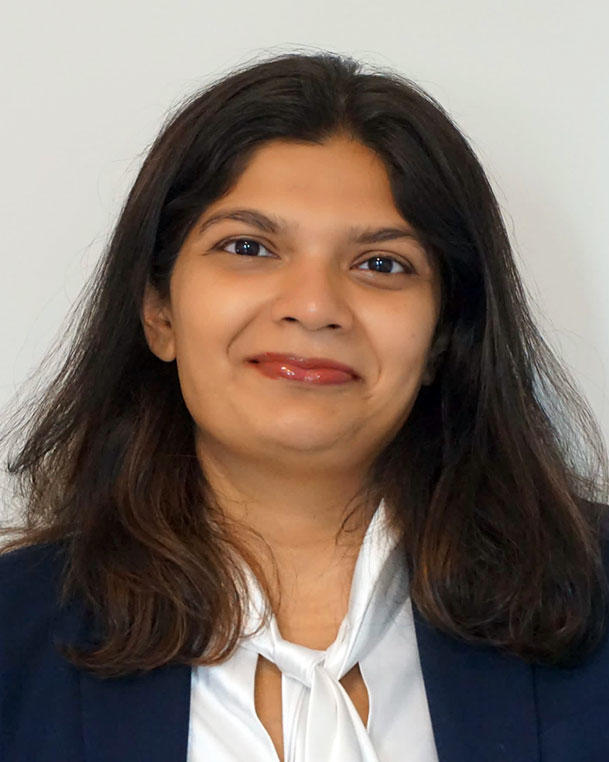
Kanan T. Desai, M.D., M.P.H.
NCI Shady Grove | Room 6E544
Biography
Dr. Kanan Desai joined the Clinical Genetic Branch (CGB) as a special volunteer in 2017. In 2018, she formally joined CGB as an ORISE fellow, and in 2020, she became a staff scientist. Dr. Desai received her primary medical degree (MBBS) in 2010 from Government Medical College, and completed her residency training in community medicine in 2014 at Surat Municipal Institute of Medical Education & Research, both in Surat, India. Her M.D. thesis focused on HIV/AIDS. She then worked for UNICEF, focusing on gap assessment and implementation research on infection control practices in healthcare facilities catering to disadvantaged populations. Dr. Desai earned her M.P.H. in 2016 from the Hadassah Braun School of Public Health and Community Medicine at the Hebrew University of Jerusalem, Israel. Her M.P.H. thesis focused on leukocyte telomere length and pulmonary function. Dr. Desai has also completed a preliminary year of residency training in internal medicine from 2022-2023 at the Icahn School of Medicine at Mt Sinai, Elmhurst Hospital Center, New York.
Research Interests
Dr. Desai works on all clinical and molecular epidemiologic aspects of the cervical cancer epidemiology research program, examining the multi-stage development of cervical cancer and its prevention.
PAVE (HPV-Automated Visual Evaluation)
The PAVE strategy combines self-sampled HPV genotyping for primary screening and secondary triage of HPV-positive women with an artificial intelligence (AI)-based algorithm (AVE) of cervical images for risk-based management in resource-limited settings. The PAVE strategy was developed under the leadership of Mark Schiffman, M.D., M.P.H., senior investigator, CGB, for secondary prevention of cervical cancer through screening and management for the Accelerated Control of Cervical Cancer under the Cancer Moonshot. The strategy is undergoing field validation in nine countries under the PAVE consortium. Dr. Desai has been involved with the PAVE study from its conception, quickly building her expertise in molecular, AI, and clinical-epidemiologic aspects of PAVE, taking on leadership roles in the study, and collaborating with experts in the PAVE consortium. Specifically, Dr. Desai’s research focuses on validating a low-cost rapid HPV extended genotyping assay, understanding challenges in adapting AI-based diagnostics in clinical practice, and developing COVID-safe screening strategies. She received the 2022 Annual CCR and DCEG SSSC Retreat award for best oral presentation on her work on developing the PAVE strategy.
Project Itoju
During her tenure at DCEG, Dr. Desai has led ‘Project Itoju,’ a screening study of ~10,000 women demonstrating the feasibility and acceptability of self-sampling and AVE (PAVE strategy) in Nigeria. The study has led to an important discovery about difficulties in visualizing the cervical transformation zone, even among premenopausal women, which has significant implications for screening and managing women using simple technologies.